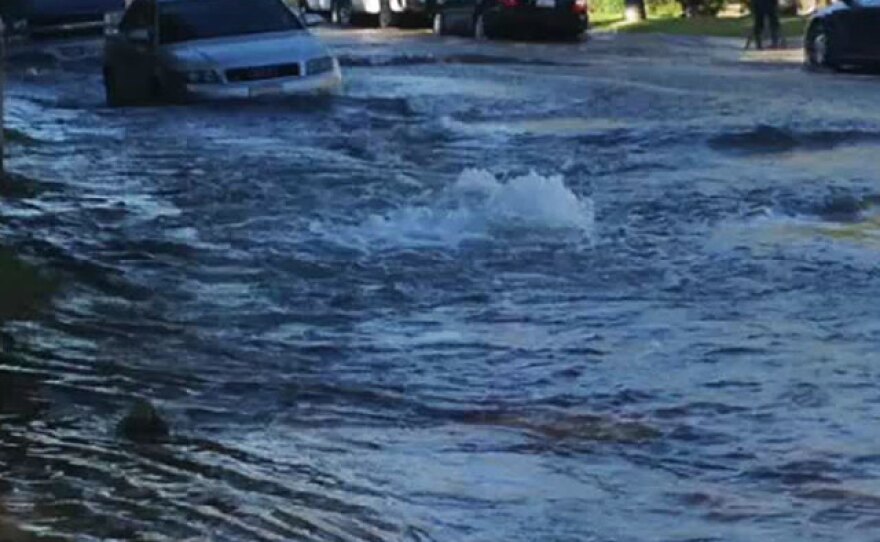
A plan to fund billions of dollars in infrastructure projects in San Diego could go before voters next year, Councilman Mark Kersey said Wednesday.
The plan to fund capital projects would join a crowded 2016 ballot, which is likely to include measures to raise the minimum wage, comprehensively amend the City Charter and build a stadium for the Chargers. The 2016 election year will also include a vote for mayor and four City Council seats.
At a meeting of the City Council's Infrastructure Committee, which he chairs, Kersey said his main goal for this year is to develop a financing plan to put before voters.
The committee also received a long-awaited five-year plan to patch up San Diego's infrastructure, which identifies $3.87 billion in needs but only $2.16 billion in available funding. The document was touted as a groundbreaking but sobering look at the challenges ahead.
"Clearly, the needs are greater than the revenue sources," Tony Heinrichs, a deputy chief operating officer for the city, told committee members.
Related Link: San Diego Mayor Faulconer On MSNBC: Infrastructure Repair Is 'Vital'
The plan, several years in the making, takes into account repairs of city streets, water and sewer pipelines, buildings and other facilities, but not policy-driven items like a new stadium or an expansion of the convention center, or structures that have not undergone a condition assessment.
"This is a critical milestone in our city's efforts to rebuild San Diego," Kersey said. "This is the most comprehensive analysis to date of the challenges that we face."
He said the data within the document will be updated over time, as conditions of facilities change and assessments are completed.
The largest of the big-ticket items listed in the report are $777 million over five years for stormwater improvements, $513.8 million over the same period for the sewer system and $415.5 million for road repairs, which Mayor Kevin Faulconer said last week will be his top priority.
The report also shows a five-year funding shortfall of $604 million for stormwater projects, $269 million for road repairs, about $225 million for street lights, $141 million for police and fire stations and other city buildings, $75 million to shore up bridges, and $55 million for traffic signals.
In the presentation to the committee, city public works executives outlined several other looming challenges. Among them are a long list of federal and state mandates, decisions on service levels — such as response times the public should expect from firefighters, and the capacity of the city government and private sector to plan for and build numerous projects within a given timeframe.
In a separate report to the committee, the Office of the Independent Budget Analyst outlined possible ways to raise revenue to close the funding gaps.
The ideas include:
• A 0.25 percent increase in the 8 percent sales tax to bring in an estimated $64 million annually.
• A 1 percent increase in the 10.5 percent hotel room tax to gain around $16.6 million a year.
• Instituting a 10 percent levy on paid parking lots, which could generate $38 million yearly.
• Raising the 95 cent monthly stormwater fee on property owners by $5, for $24.3 million annually.
• Repealing an ordinance that requires free curbside trash pickup, a $47.3 million cost this fiscal year.
• Passing a general obligation bond, which would cost the average homeowner $14 a year.
• Creating an Enhanced Infrastructure Financing District, which would work like the old redevelopment system by harnessing tax revenue generated in a given location.
Kersey expressed interest in such districts, which were only recently authorized by the state.
The tax increases would require a two-thirds vote by residents. According to the Independent Budget Analyst's Office, San Diego's hotel room taxes and stormwater fees are among the lowest in California for major cities, though the city levies an additional 2 percent charge to fund tourism marketing.
San Diego is also the only large municipality to not charge at least something for hauling trash, the analyst's office reported.
In a memo to the City Council and the public, Faulconer said he will unveil proposals soon on ways to speed the capital improvement program and develop strategy and funding ideas to improve road quality.






